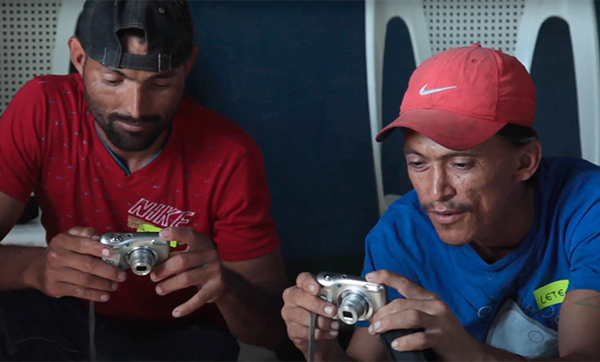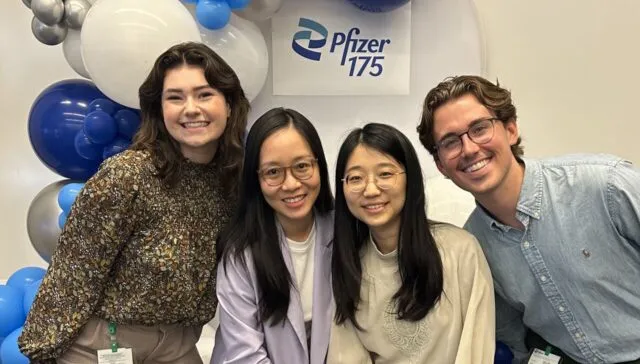Highlighting chronic kidney disease in Nicaragua and amplifying the voices of those most affected.

Dr. Madeleine Scammell helped develop a documentary that amplifies voices of patients with chronic kidney disease in Nicaragua, which has been selected as a finalist for the WHO Health for All Film Festival.
Since 2009, researchers from the School of Public Health have been collaborating with researchers in Central America to study the causes of an unusual form of chronic kidney disease, also known as Mesoamerican Nephropathy (MeN). The mysterious and deadly disease has disproportionately affected male agricultural workers. This disease appears to be unrelated to traditional kidney disease risk factors, such as diabetes or hypertension.
Now, Madeleine Scammell, associate professor of environmental health, is a co-investigator on a documentary film project. Its aim? To raise visibility about chronic kidney disease disease in Nicaragua and amplify the voices of those most affected by it.
The project, titled “Photovoice: the voice of those affected by Mesoamerican Nephropathy,” has been selected as a finalist from over 1,200 entries for the World Health Organization Health for All Film Festival. The project was selected alongside 14 others in the Better Health and Well-Being category at the festival. Other categories include Health Equity, Universal Health Coverage, and Health Emergencies.
Photovoice is a form of Participatory Action Research that Scammell says is “the perfect combination of visual imagery and narrative storytelling.” The documentary project, filmed in early 2020, put affected people at the center of the conversation to raise awareness about this unusual form of chronic kidney disease and its socioeconomic impacts on families and communities. Scammell and BUSPH researchers, are currently looking for partners to help them solve the technical challenges of deploying peritoneal dialysis.
Scammell says that the MeN epidemic has gained international attention in recent years. This was assisted by the efforts of professional photographers and filmmakers documenting the devastating impact of the disease. “With this project, we really wanted the people most affected by the epidemic to share their own images to represent the impact of this illness on themselves, their families, and their communities.”
Reducing social isolation through community building and story telling.
Participants in the project were given cameras to record and document their lives around four main themes: access to advanced care for the disease, such as drug therapies or dialysis; economic burdens and the challenges accessing food, drinking water, and housing; stigma and family burden, including caregivers’ mental health and well-being; and community resources. Each week, participants would come together with the researchers to discuss their experiences.
“Storytelling can be a therapeutic form of sharing and processing,” says Scammell. “By empowering participants to document and share their experiences with this socially isolating disease, they are able to build connections and a sense of community.”
Scammell says that participants in epidemiologic studies don’t often find the same meaning in study results in the way that researchers do. “This project gives participants the opportunity to share the information they think is the most important —to tell their story.”
In addition to the documentary film, the project includes a book containing participants’ photographs and quotes. There is also a forthcoming peer-reviewed manuscript discussing research results.
This project was funded by the Fundación Renal Íñigo Álvarez de Toledo. The principal investigator is Oriana Ramirez-Rubio, policy analysis coordinator at the Barcelona Institute of Global Health (ISGlobal). Co-investigators include Juan José Amador and Alda Gabriela Amador, BU researchers in Nicaragua; Cristina O’Callaghan-Gordo and Francisco Javier Sancho of ISGlobal; Marvin González-Quiroz and Arlen Soto of the National Autonomous University of Nicaragua-León; and Paloma Conde Espejo of Alcalá de Henares University.
This article was adapted from Documentary Amplifies Voices of Chronic Kidney Disease Patients in Nicaragua.




